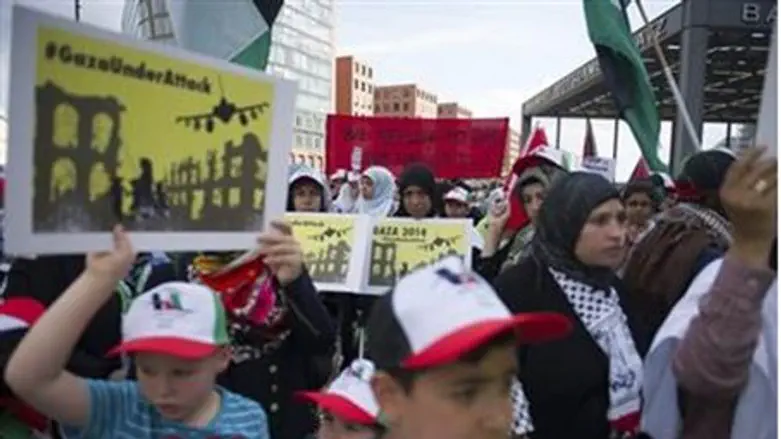
A dead man found beaten beyond recognition in the ruins of a Gothic church in Berlin was an Israeli citizen, the Israeli embassy confirmed on Wednesday.
Passersby reported finding the body early Sunday at the site near Berlin's City Hall and the embassy said in a brief statement that it had received confirmation that the victim was one of its nationals.
It did not provide further details.
"The name of the dead man will not be released for now out of respect for his loved ones," it said.
A spokeswoman for the Berlin police said she could not confirm the victim's nationality.
"The identification process is ongoing," she told AFP.
A Berlin-based prosecutor involved in the case told Channel 10 that police have, in fact, confirmed the victim's origin and his age; the victim was killed after suffering multiple blows to the head. So far, police have not determined a motive, he added; they are waiting for a DNA test to be completed to identify the victim and to find out why he was staying in - or living in - Berlin.
Police said they have opened a murder investigation into the case in which the victim was found in the ruins of the 14th century Church of the Franciscan Monastery, which was destroyed during World War II.
They have called for any witnesses to come forward.
Although the man was carrying an Israeli passport, his face could not be compared with the identity photo due to his "massive injuries", they added.
Earlier Wednesday, Rabbi Shmuel Segal of the Chabad center in Berlin told Walla! that he knows the Israeli youth, relating that "he was with us for a long time."
"We have a Chabad center right next to the place where he was found. Those who know Berlin know that in the area of Alexanderplatz there are lots of strange people," said the rabbi. "I think that's currently the line of the police, they don't have too much information."
Rabbi Segal said it wasn't clear if the youth was a tourist or a resident of Berlin.
Rabbi Yehuda Teichtel added that the youth arrived at the Berlin Chabad on Passover eve, noting, "he said he didn't have anywhere to be."
"We brought him food, we arranged a place to sleep for him," recalled the rabbi. "That same evening he said 'great,' and then left and didn't return. He wasn't at the (Passover) meal, and didn't come to sleep."